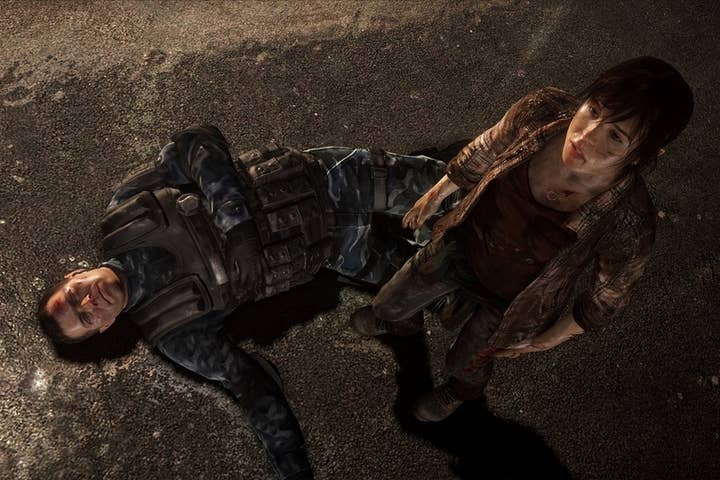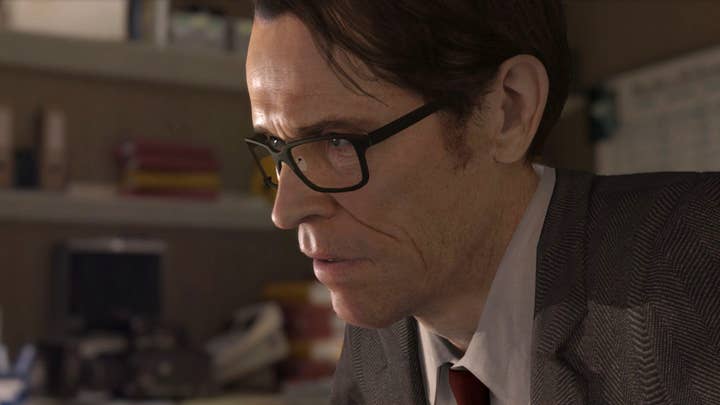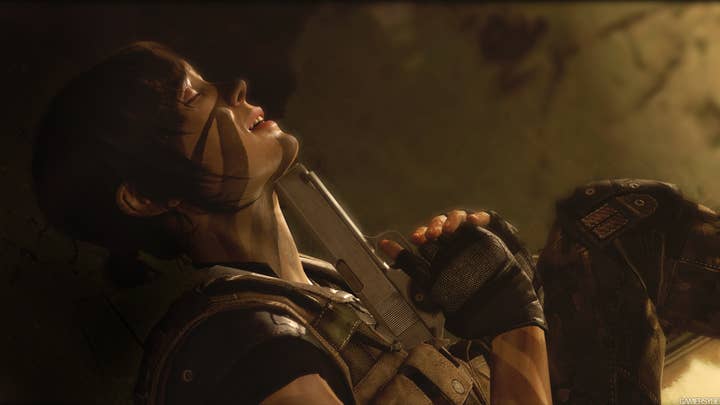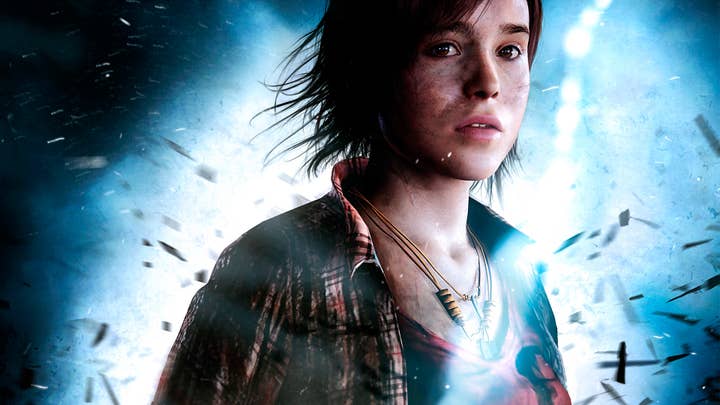Critical Consensus: Beyond puts gameplay in the backseat
Quantic Dream's latest refines the studio's focus on storytelling above all else, and critics seem torn on what that means
When Sony Computer Entertainment took a chance on Quantic Dream, it produced the critically-acclaimed Heavy Rain. So it's no surprise that the publisher and developer have teamed up again for another PlayStation 3 exclusive project, Beyond: Two Souls. The supernatural thriller launched in North America today, with a European launch coming this Friday.
The scores on Beyond are all across the board, hovering in the middle range with a few high peaks and low valleys. Digital Spy and Gamespot are on the high-end, with a perfect 5 out of 5 and 9 out of 10, respectively. Destructoid brings up the rear with a 5 out of 10 and Gameranx is at the very bottom with a 3 out of 10. All told, 49 critic reviews add up to a Metascore of 74 as of this writing.
A number of reviewers peg Beyond as an interactive narrative instead of a game, including Digital Spy's Mark Langshaw, who gave the game a perfect score.
"Beyond: Two Souls feels more like an interactive movie than a video game in its own right, but the story it has to tell is thoroughly gripping, and will take players from one end of the emotional spectrum to the other," says Langshaw.

Eurogamer's Oli Welsh, who gave the game a 6 out of 10, agrees that Cage was aiming to create an interactive film.
"Beyond: Two Souls has been formatted for screens it will never appear on. The entirety of this expansive, expensive paranormal thriller from French studio Quantic Dream is presented in the super-widescreen 'scope' film format, and shows between thick black bars on your TV set. Just like a movie," he explains. "Beyond is all story, and what you are experiencing is tacitly held to be bigger, grander, more epic and encompassing, than how you're experiencing it."
This is a feeling many had with Heavy Rain, but Destructoid's Jim Sterling - who have the game a 5 out of 10 - has an issue with the fact that Beyond doesn't allow you to fail. When you miss or screw up, the game adjusts and keeps on going. Sterling believes this takes away from the importance of your personal actions.
"Essentially following in Heavy Rain's footsteps, Beyond is another spiritual successor to Dragon's Lair, with even less agency and some awkward controls thrown in for good measure," says Sterling. "As Jodie, interactions are restricted mostly to walking around, opening doors, engaging in restrictive conversations, and indulging in the occasional quick-time-event sequence. For much of this, the player's input is almost entirely optional. QTE action sequences can be completed without needing to even pick up the controller, as Jodie will survive all encounters if you fail every single button prompt."
I simply didn't care about the bland, superficial plot vehicle whose lifeless idea of life was in my hands
Destructoid's Jim Sterling
"Once you cotton on to the fact that your personal input is almost meaningless, and the impact of your inaction is frivolous, your only real incentive for 'playing' is to humor the game, and it does indeed feel like you're patronizing it when you decide to play along with the fantasy of player agency," he continues. "Nowhere is this more typified than one sequence in which I could choose to speak up in order to stop something bad happening to another character ... and I didn't say a word. It didn't really matter if the bad thing happened (there was only a cosmetic change) and I simply didn't care about the bland, superficial plot vehicle whose lifeless idea of life was in my hands."
"Heavy Rain made up for its teeth-brushing and rape-escaping stick flicks with a central mystery and the knowledge that a botched QTE could have fatal ramifications. Beyond, by contrast, is a game that is almost impossible to fail," concurs Edge Online, who awarded Beyond with a 5 out of 10. "Mess up most combat QTEs and Holmes will take the hit before putting a foe down automatically. Some of the bigger action sequences will simply end early, and failure may affect the story - there are two dozen endings this time, the branches better hidden by simple virtue of there being no threat of protagonist death. Deliberately fluffing your inputs in the hope of triggering a narrative shift that may not become apparent for several hours doesn't, however, make for much of a videogame."
With game mechanics taking a backseat, much of Beyond's presentation depends on the movie star cast and the story. Ellen Page and Willem Dafoe lead the cast, with both actors having gone through extensive voice and facial capture for the game. Polygon's Justin McElroy calls the game "vastly improved" over its predecessor when it comes to presentation and gave Beyond an 8 out of 10.

"Despite that frustration, Beyond: Two Souls often succeeds where predecessor Heavy Rain failed because the storytelling is so much better," he says. "The performances are vastly improved - thanks in no small part to better actors - and the motion capture is staggeringly great. The detail of animations, both in faces and bodies, manages to leap right over the uncanny valley and into the realm of believability. In a few moments, like when I watched Jodie struggle gamely carrying a bale of hay into a barn, I would have sworn I was watching a real person. The environments are absolutely stunning, which helps the verisimilitude."
"David Cage's ambition is to increase emotion in games, and the weight of that sits squarely on Holmes' shoulders. Ellen Page gives a fine and, yes, emotive performance," adds Edge. "As LA Noire proved, the trick to wringing believable in-game portrayals from big-name talent is to stop sticking actors in a voiceover booth with a script and start performance capturing the whole thing. Facial animation here is perhaps even better than in Team Bondi's police procedural: every wrinkled nose and furrowed brow is believable, bordering on photorealistic."
Unfortunately, when you strip away game mechanics, all that remains is the story being told. Hollywood actors and beautiful graphics can't hide a plot that isn't completely up to snuff, and Sterling took Cage to task for it.
"The auteur theory is all well and good, but it only really works out for a piece of art if the auteur in question is good enough to actually be an auteur. I've believed for years that Cage, while an undoubtedly talented man, is simply not a strong enough creator to be an unchallenged writer and director. If Beyond: Two Souls does anything right, it's prove that belief," says Sterling. "It demonstrates, beyond doubt, that Hollywood actors, cutting edge-visual technology, and a decent budget mean nothing, if it's all being piled onto a ship with an unsuitable captain."
Polygon's McElroy agrees that the mechanics have been stripped away to focus players' on the game's story, but that Beyond's story isn't all its cracked up to be.

"With Beyond: Two Souls, Quantic Dream has smoothed away nearly all the rough edges in how it presents its stories," he says. "The other edge of that sword is that it lays the stories themselves bare to be judged entirely on their own. With so many of the traditional elements of gameplay stripped away, like challenge and exploration, a tremendous amount of weight is put on Beyond's story to carry the day. While it's exhilarating to see a team that has worked so hard to perfect a new way of telling stories, I couldn't help wishing they had a perfect one to tell."
This seems to be where the difference in review scores stems from, with those on the high-end of the review scale enjoying the game's story immensely.
"Beyond: Two Souls is one of the most poignant and enthralling stories we have encountered in a video game, capable of stirring up the same depth of emotion as great works from the mediums of film and literature," says Langshaw.
Gamespot's Tom McShea, who gave Beyond a 9.0, called the game a "gripping adventure" and found himself sympathizing with lead character Jodie Holmes, played by Page.
"It's Jodie's transformation from scared child to confident adult that's so mesmerizing, and you grow to care for her as you become invested in her plight," says McShea. "Top-notch acting makes the characters you interact with sound believable, and their faces are expressive enough that you understand their thoughts even when they remain silent. Beyond: Two Souls so easily melds story and mechanics that you become enamored with this young woman and her extraordinary life."
It would be one of the worst movies you've ever seen, even though Ms. Page and Mr. Dafoe give fine performances
New York Times' Chris Suellentrop
In the end, there's a contingent of reviewers out there who believe that just because Quantic Dream's Beyond isn't perfect, doesn't mean it's not important. The New York Times' Chris Suellentrop, one of the few mainstream outlets to review the game as of this writing, praised the simple fact that Cage and company reached for something different. Suellentrop did admit that the difference - a pure focus on directed interactive narrative - isn't as rare as it once was.
"The point of the choices in Beyond is not to make the game replayable but to make you emotionally invested in the story. Yet other recent games have done this more successfully. If you are curious about video games that treat you as an adult and are emotionally cathartic, play Journey, Papo & Yo, The Walking Dead and Gone Home, to name a few," says Suellentrop.
"Beyond: Two Souls is a misstep for Mr. Cage and Quantic Dream, but its failings are not the result of the limitations of Mr. Cage's preferred medium. That it is interesting at all hinges on its interactive nature. It would be one of the worst movies you've ever seen, even though Ms. Page and Mr. Dafoe give fine performances," he continues. "There's still something mesmerizing about what Mr. Cage is trying to achieve, even if the gumbo endemic to his work is seasoned with too much awful and not enough wonderful this time around. I can't help but look forward to playing whatever he makes next."

